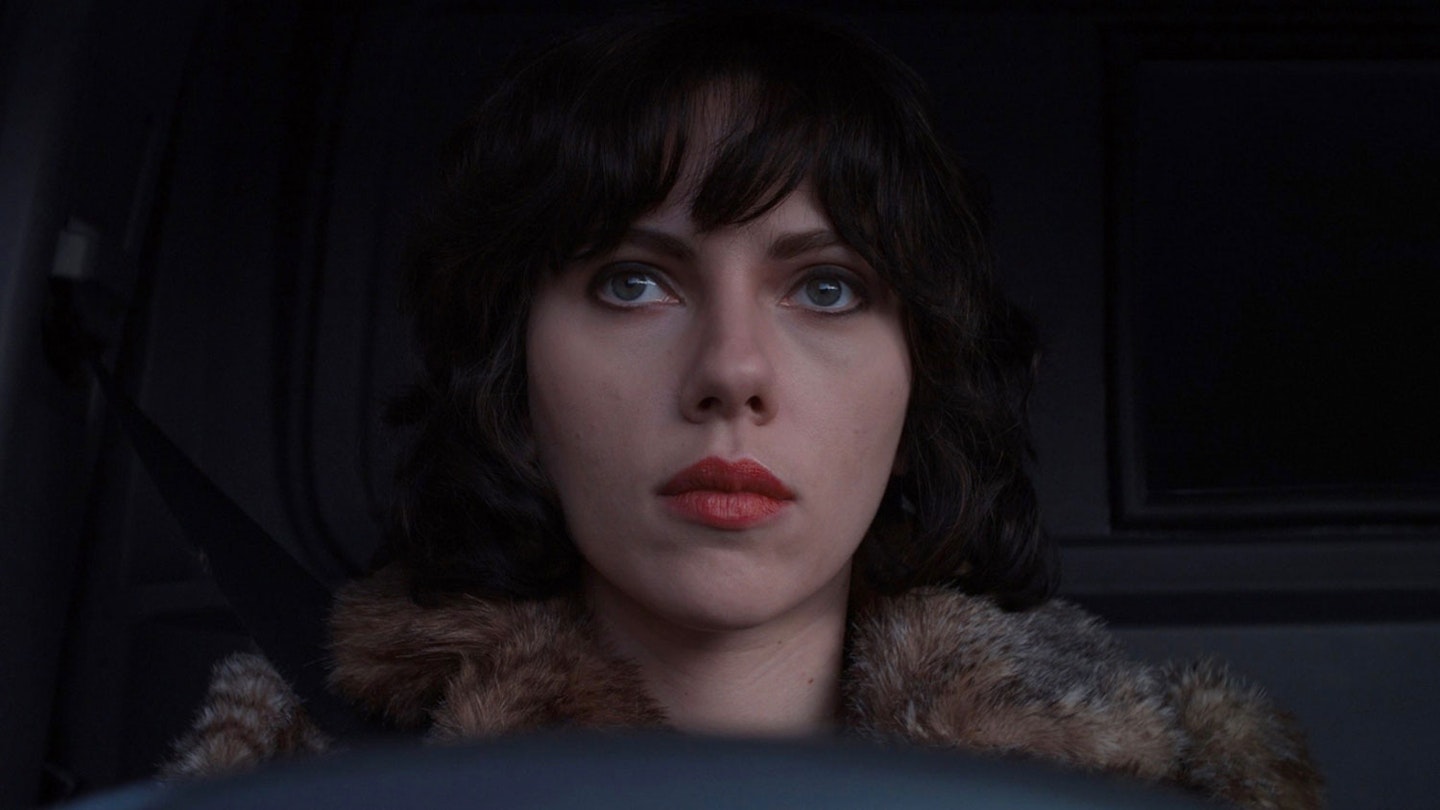In recognition of the fact that two decades have now passed since the start of the millennium, Empire is counting down the greatest movies of the past 20 years. Looking over the 21st Century cinematic classics that have graced our screens, the list has been compiled by combining choices submitted by Empire critics, and picks from readers to arrive at a definitive rundown of the 100 greatest movies to land in the year 2000 and beyond.
You can already read numbers 100 – 91, 90 – 81, and 80 – 71 on the list – and below you’ll find the next ten movies to have found their way into the top 100. Stay tuned to Empire Online as we unveil more of the full list in the coming days, and look out for more information coming soon about Empire’s upcoming 100 Greatest Movies Of The Century magazine issue and podcast special.
70. Avatar (2009)
In the run-up to James Cameron’s multiple long-awaited Avatar sequels, the internet at large seems to have turned its back on his initial blue-cats-in-space epic. If the world of Pandora feels familiar now, its initial impact was seismic – the alien planet, rich with dayglo flora and loopy fauna, proved so immersive and visually stimulating (particularly in revolutionary rarely-bettered 3D), that audiences went back again and again. There were even reports of viewers being depressed after the comedown of ‘visiting’ such a beautiful world. The extraordinary environment plays host to a familiar but effective Dances With Wolves-inspired tale, as human ex-soldier Jake Sully (Sam Worthington) joins the native alien tribe on the planet that Earth colonies are stripping for resources. Subtle? No. But its sheer bravado and B-movie dialogue coheres into a wide-screen original adventure movie with mech battles, bird-dragons, and magic trees that for a decade reigned as the biggest box office hit of all time. Never underestimate James Cameron.
69. The Royal Tenenbaums (2001)
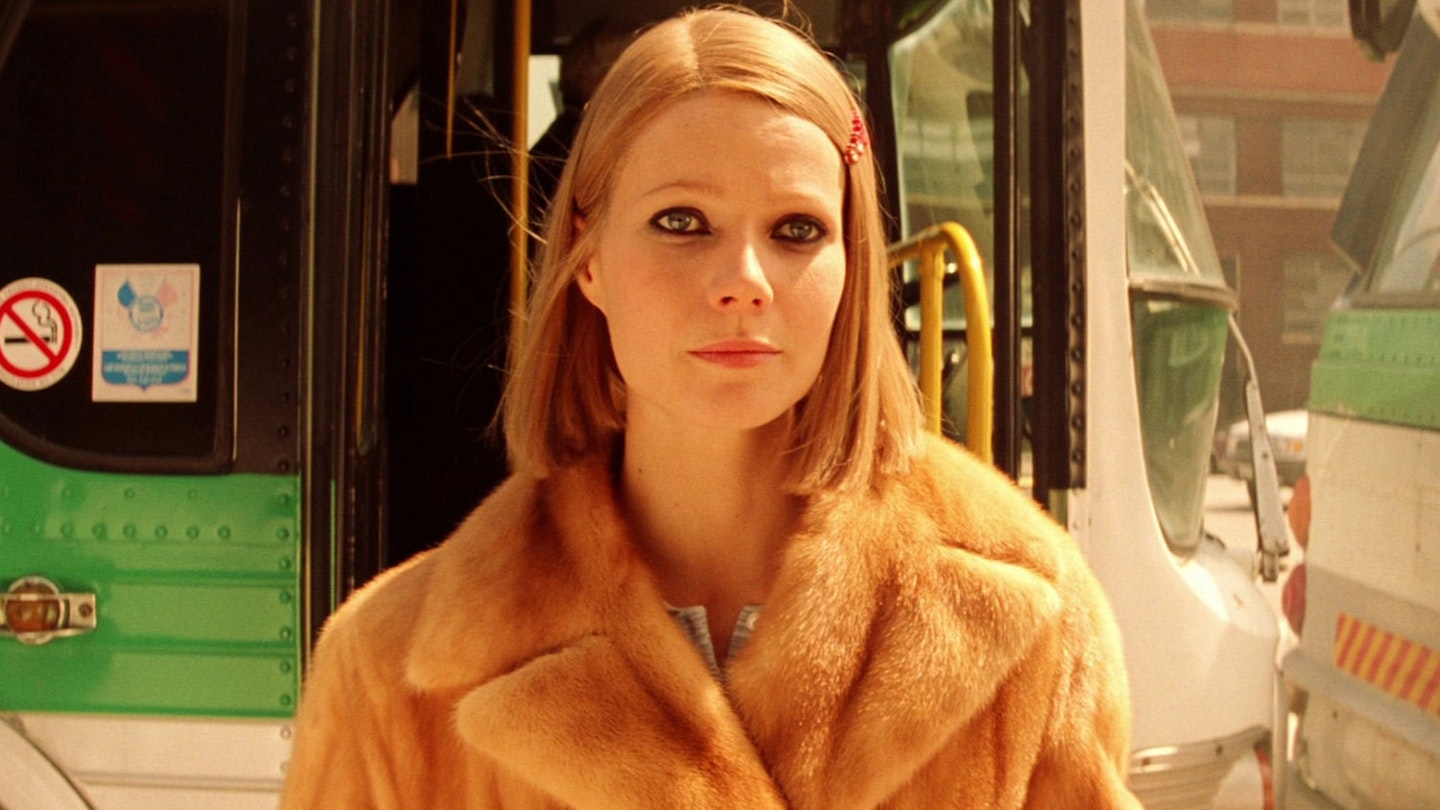
It’s all here: the dolls house layout shot; the fastidious framing and colour palette; the playful narrative structure (purporting to be based on a novel that doesn’t actually exist); the dry and archly humorous dialogue; the absurdist situations; the clash of seriousness and whimsy; an extraordinary wish list of a cast that in this case includes Gene Hackman, Ben Stiller, Anjelica Huston, Owen and Luke Wilson, Danny Glover and Anderson’s lucky charm Bill Murray; and an eclectic jukebox soundtrack of so many impeccable needle-drops that it needed two albums to collect them all. Wes Anderson, unmistakably, makes Wes Anderson films, and his third set the benchmark for the rest of his career. Bottle Rocket showed promise. Rushmore marked him as a writer-director to keep an eye on. But it was The Royal Tenenbaums that consolidated Anderson’s status as the idiosyncratic indie auteur to rule them all.
68. Apocalypto (2006)
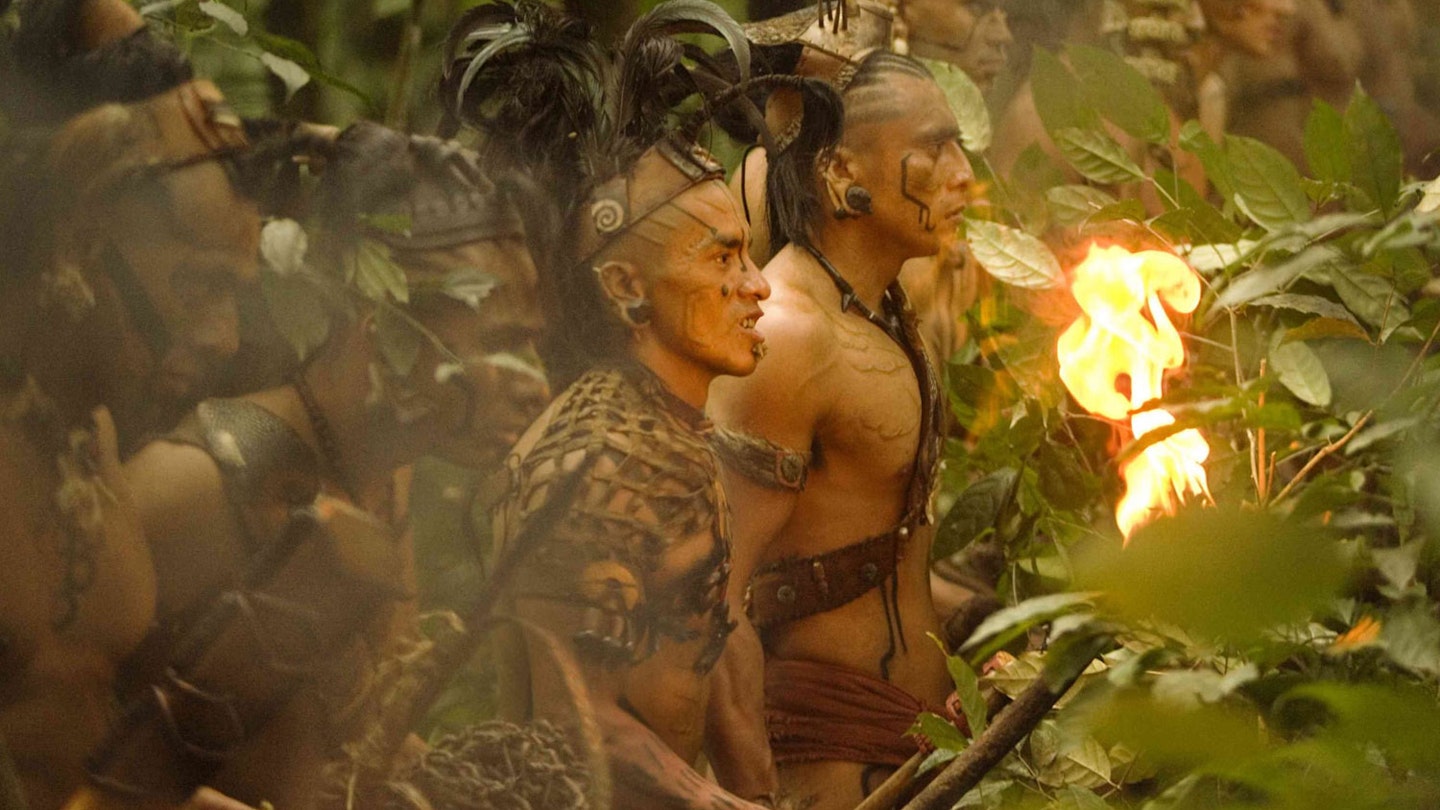
Whatever you think of Mel Gibson these days (and that’s a considerable caveat), it’s hard not to admire the sheer gonzo bloody-mindedness of Apocalypto: a $40 million 16th Century jungle action adventure with no recognisable stars, in subtitled Yucatec Mayan. Essentially a single foot chase, piling ever more travails onto Rudy Youngblood’s hapless Jaguar Paw, it nevertheless raises typically Gibsonian philosophical questions about the role of violence in "civilisation". Given the sheer visceral impact of what takes place on screen, we’re left in no doubt about the director and co-writer’s position in the debate. And yet, somehow, Apocalypto remains thrilling rather than punishing, and ultimately hopeful in spite of its surface nihilism. Eccentric bordering on full-on crazy, contradictory, occasionally infuriating, always compelling: a vision both expansive and deeply personal. We will not see its like again – unless Gibson ever gets his Old Norse Viking epic going.
67. Hot Fuzz (2007)
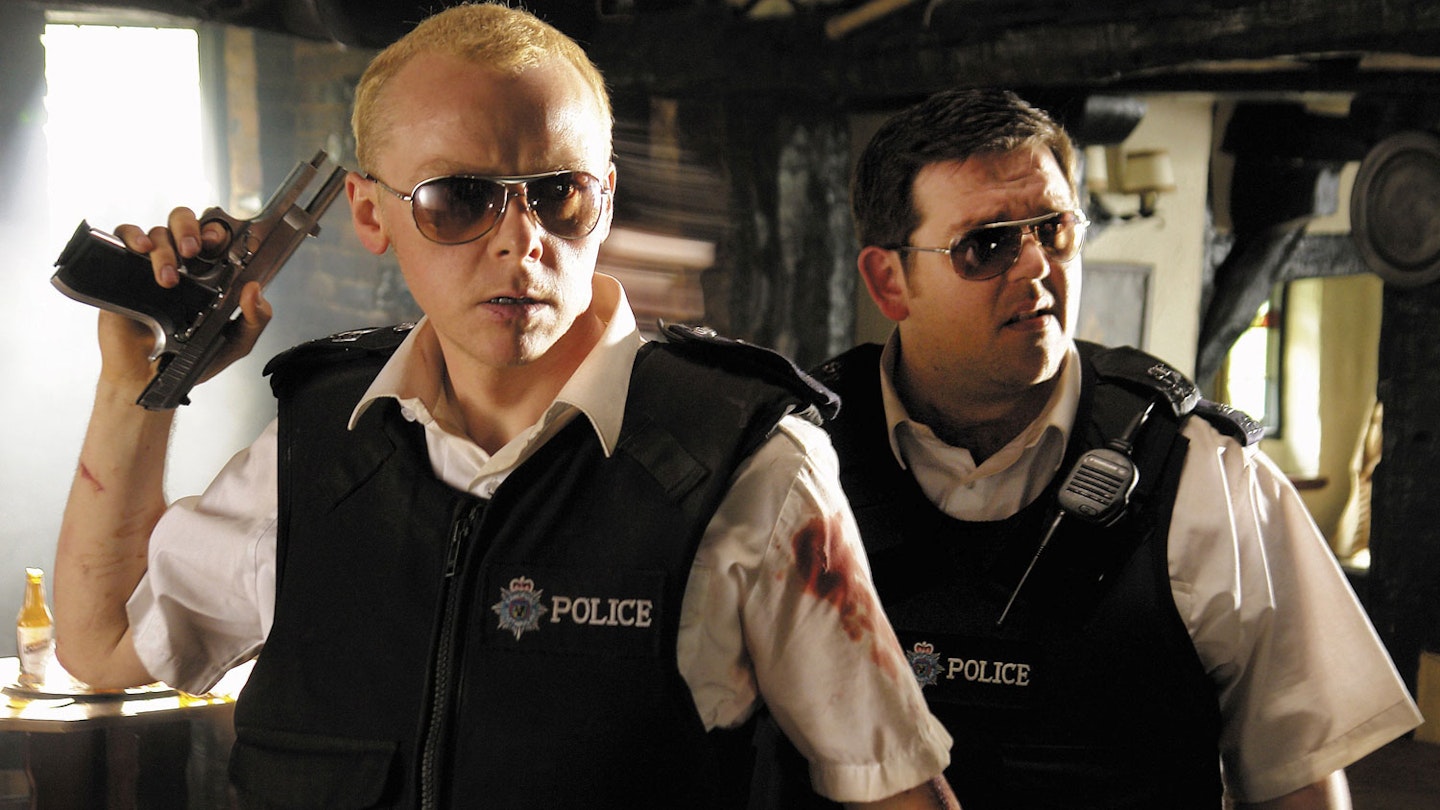
After skewering 30-something London life in Shaun Of The Dead, Edgar Wright and Simon Pegg turned their eye to rural small-towns – a loving parody of, and homage to, little Britain (complete with actual mini model village) and big American action cinema. Propelled by a stellar comic turn from Nick Frost as buddy-cop obsessed police constable Danny Butterman, a delectable Timothy Dalton as wolf-grinned supermarket manager Simon Skinner, and a raft of comedy greats (Olivia Colman! Adam Buxton! Alice Lowe! Bill Bailey!), it’s probably the outright-funniest film in the Cornetto Trilogy – and that’s before Wright giddily gets his Michael Bay on when Simon Pegg tools up as hero cop Nick Angel in the final act. Hot Fuzz is a rapid-fire gag-cannon with impeccable editing that further cemented the filmmaker’s voice, with a long-standing legacy as the film that’s impossible to scroll past on endless ITV2 repeats. It’s prescient, too – try watching it in 2020 without picturing the elderly Neighbourhood Watch as a bunch of bloodthirsty Brexiteers.
66. The Prestige (2006)
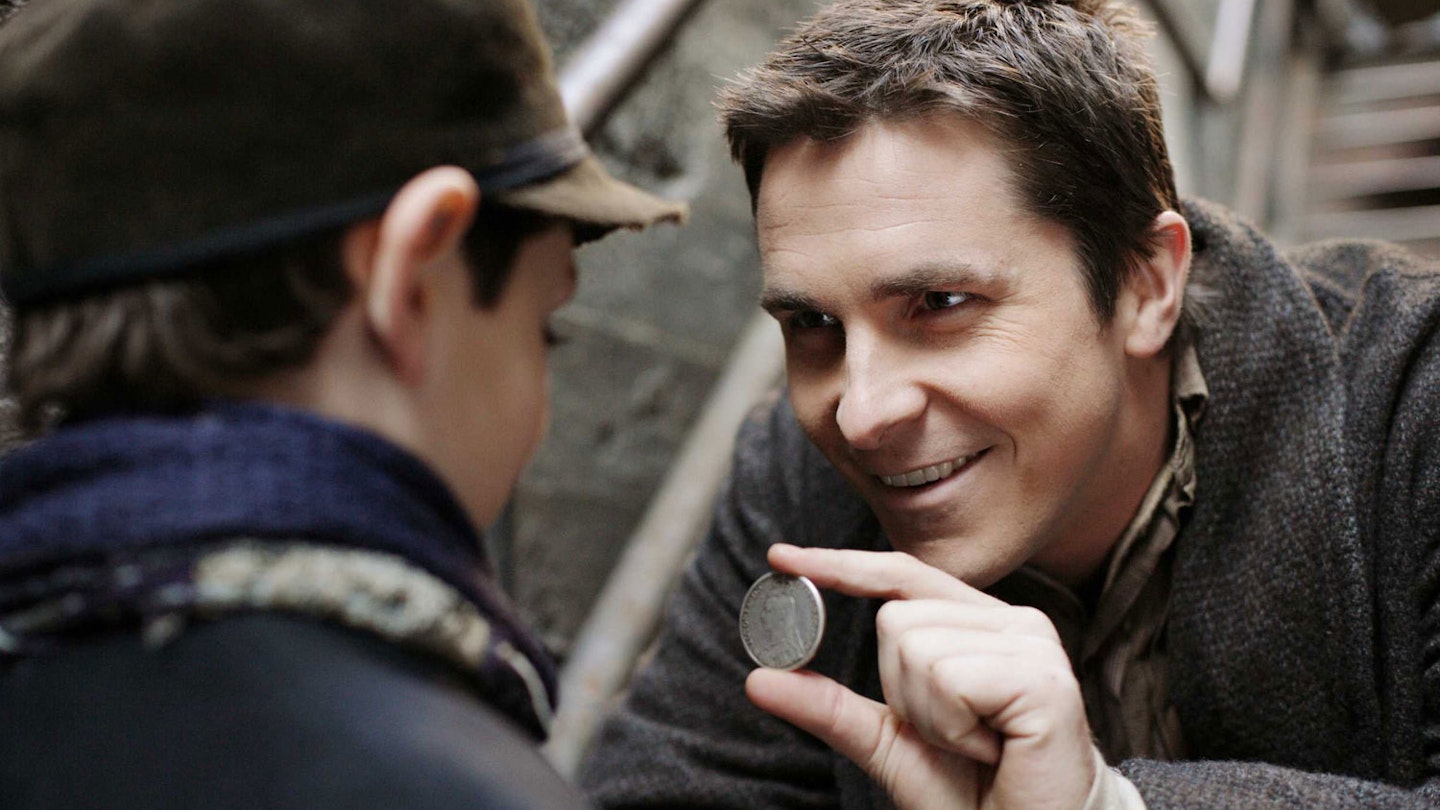
Before The Dark Knight brought him back to Gotham, Christopher Nolan followed up Batman Begins with a beguiling drama-thriller about warring illusionists in Victorian London. The Prestige is a film that’s impressively illusory itself, it’s non-chronological narrative unfolding in the same way as Hugh Jackman and Christian Bale’s tricks – a Pledge (the set-up), followed by a Turn (a transformation), and the Prestige (an extra twist). For a filmmaker who often deals in conceptual bombast, The Prestige finds Nolan in sleight-of-hand mode, pulling the strings to set up an eerie final reveal – but the reason it works is because of how well-drawn the characters are. Bale’s Borden is a working class, rough-round-the-edges counterpoint to Hugh Jackman’s flashier, colder Angier – the latter driven to increasingly extreme measures and ultimately compromising his humanity to repeat his rival’s most impressive act. For a lower-key Nolan film it looms large – and boasts the delight of David Bowie playing Nikola Tesla.
65. Toy Story 3 (2010)
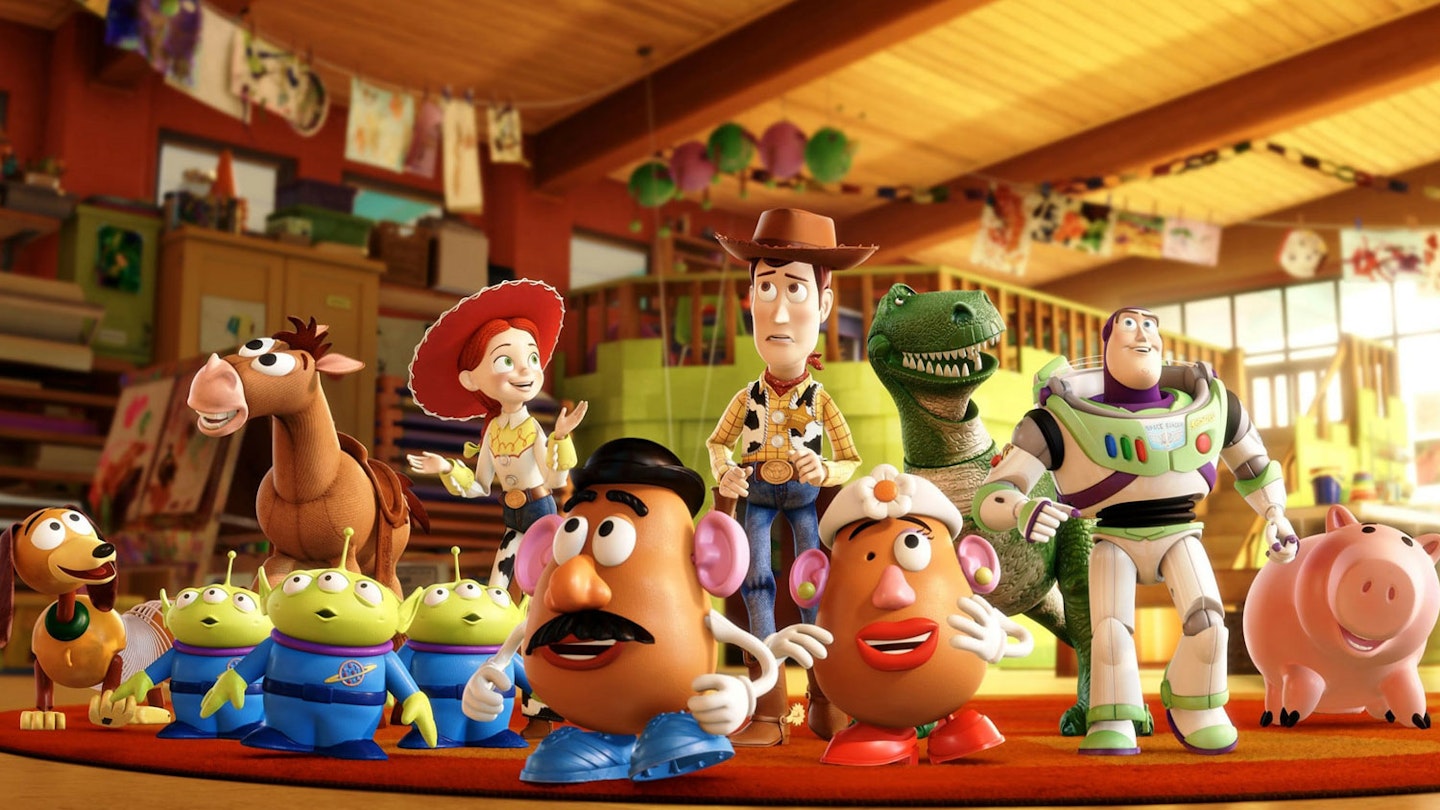
The perfect trilogy closer, until it wasn’t. Toy Story 3 is peak-power Pixar, provoking tears and laughs in equal measure. At the time concluding the series that made the animation studio’s name, the farewell to Woody and Buzz delighted kids and reduced adults (especially those who had literally grown up with the titular toys) to blubbering messes with its perceptive ruminations on the end of childhood. Whether it’s that incinerator scene that threatened to engulf our heroes in flames, or college-bound Andy’s ultimate handing-over of his beloved playthings to toddler Bonnie, it’s undeniably emotional – but there’s joy too in its Great Escape-inspired nursery-break plot, bringing in top new characters like Timothy Dalton’s melodramatic hedgehog Mr. Pricklepants and gruff unicorn Buttercup. Plus, in insidious strawberry-scented bear Lotso, it had another secretly-shady beloved male authority figure, unmasked as a menace despite his cuddly persona – years before former Pixar boss John Lasseter was himself disgraced in the #MeToo movement.
64. Almost Famous (2000)
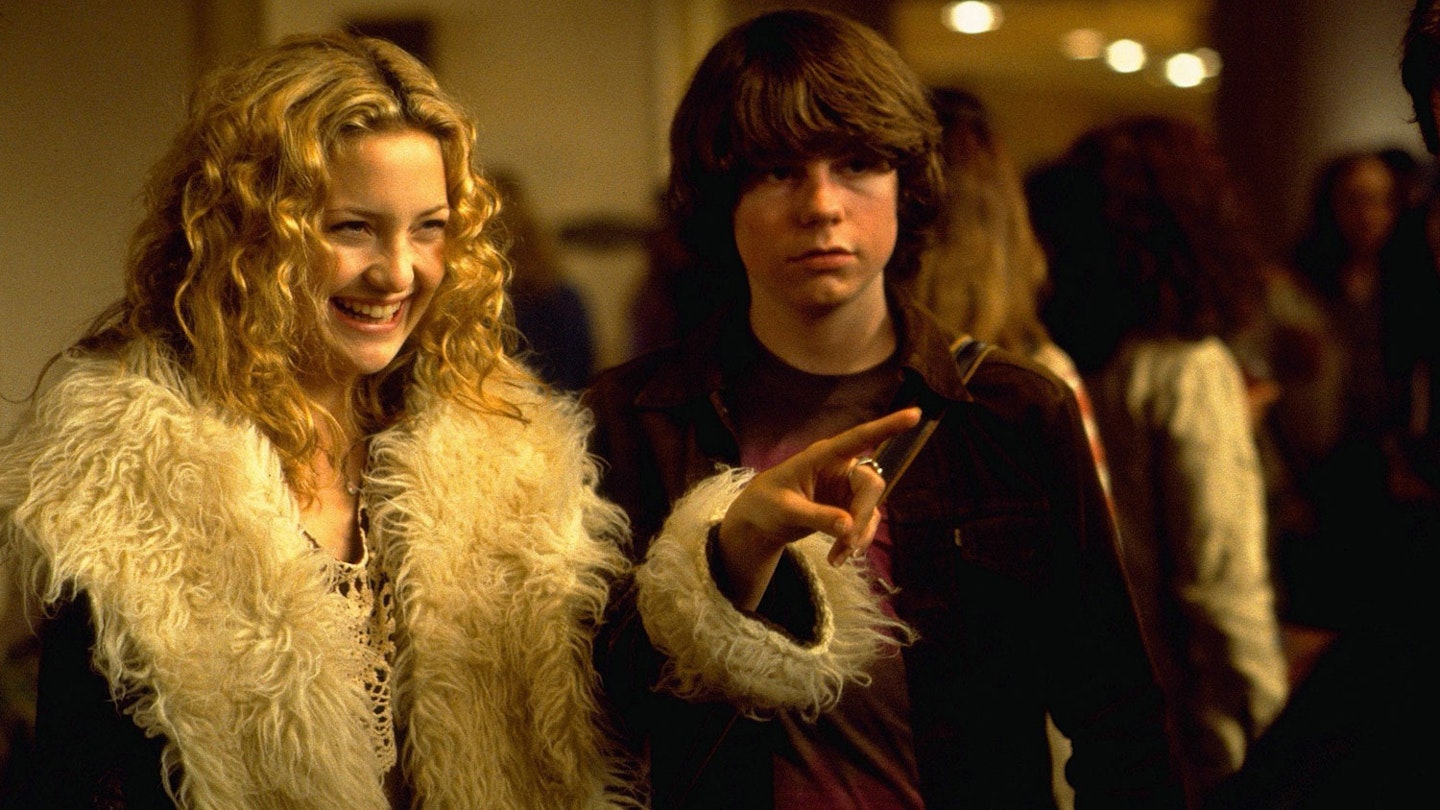
Remember the days when music journalists could spend weeks on end touring with rock bands for the sake of a single interview piece? Cameron Crowe does, fictionalising his own teenage experience writing for Rolling Stone into a glowing nostalgia-piece celebrating the ‘70s rock scene and the culture that accompanied it – drugs, “band aids”, longform journalism and all. There’s a sincerity to Almost Famous – whether it’s the scene in which young William inherits a stack of vinyl records from his older sister (“Look under your bed – it’ll set you free,” she tells him) or the Stillwater tour bus singalong to Elton John’s ‘Tiny Dancer’, Crowe’s deep love of music and the power it holds in adolescence is inescapable. Brimming with emotion, quotable dialogue (“The only true currency in this bankrupt world is what you share with someone else when you’re uncool”), and engaging performances from Kate Hudson, Billy Crudup and Philip Seymour Hoffman, it’s a film of sheer, unadulterated affection.
63. Under The Skin (2013)
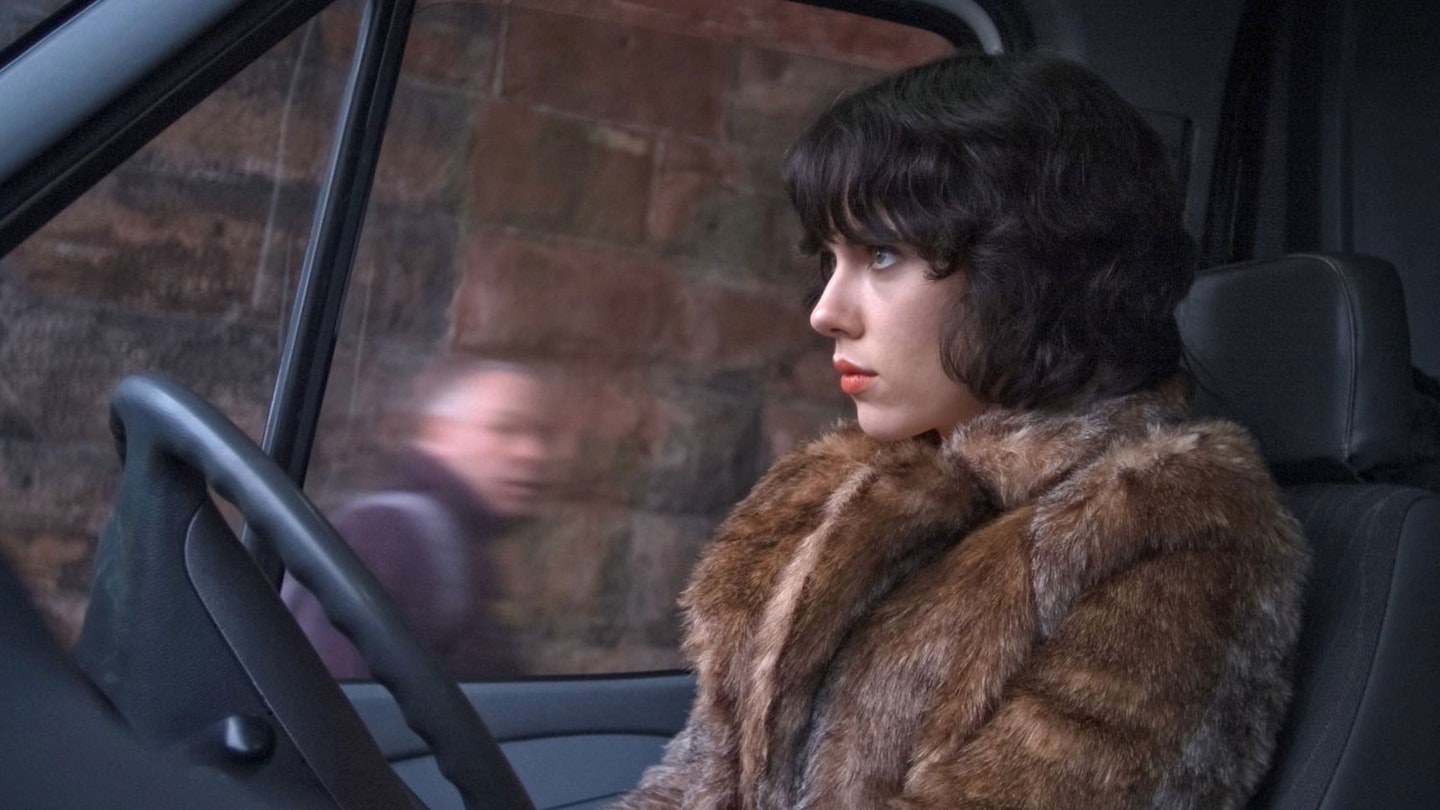
Jonathan Glazer’s emotionally blank, almost wordless sci-fi is a loose and oblique adaptation of Michel Faber’s novel – to the extent that almost nothing explicitly survives the translation beyond the central premise of Scarlett Johansson’s Woman Who Fell To Earth. Playing the alien with a perfect air of otherworldly curiosity, Johansson anchors the abstract narrative with a performance that’s as brave as it is understated, floating through a cast of Scots amateurs who – if you believe the behind-the-scenes narrative – often didn’t know they were being filmed and somehow didn’t recognise her. Intriguing, brutal without actually being that violent, occasionally upsetting and, at one particular beach-set point, actively harrowing, it’s not an easy watch. But it is a rewarding one: a disorienting sensory experience; purely cinematic despite its literary starting point.
62. Sideways (2004)
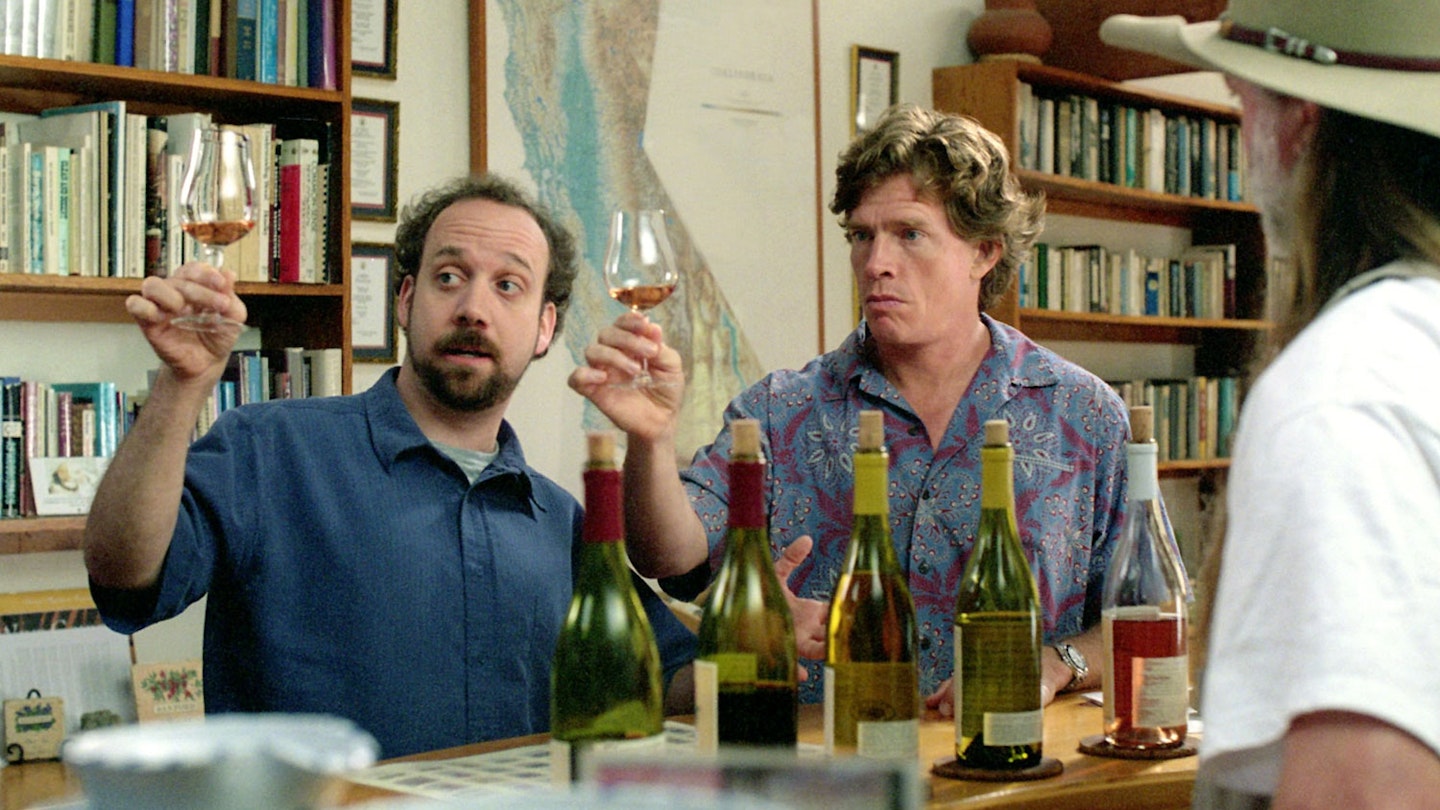
As you’d expect from a director whose career started with Election and led to Nebraska, Sideways is acutely observed and delicately played, funny and poignant. A similar sadsack exploration to his previous film at the time, the Jack Nicholson-starring About Schmidt, Alexander Payne’s wine-centric road movie revolves around Miles, (a never-better Paul Giamatti) the schlubby, depressive, recently divorced failed novelist and groaningly pretentious wine bore at the heart of the film. On paper he’s an asshole, and there aren’t many actors who could make you root for him – if Sideways tells us anything, it’s that we shouldn’t take Giamatti for granted. But Miles is helped to redemption by the ensemble around him, comprising Thomas Haden Church, Sandra Oh, and particularly Virginia Madsen, with whom he shares the film’s most beautifully written scene: in mansplaining a high maintenance wine, Miles unwittingly describes himself.
61. Shaun Of The Dead (2004)
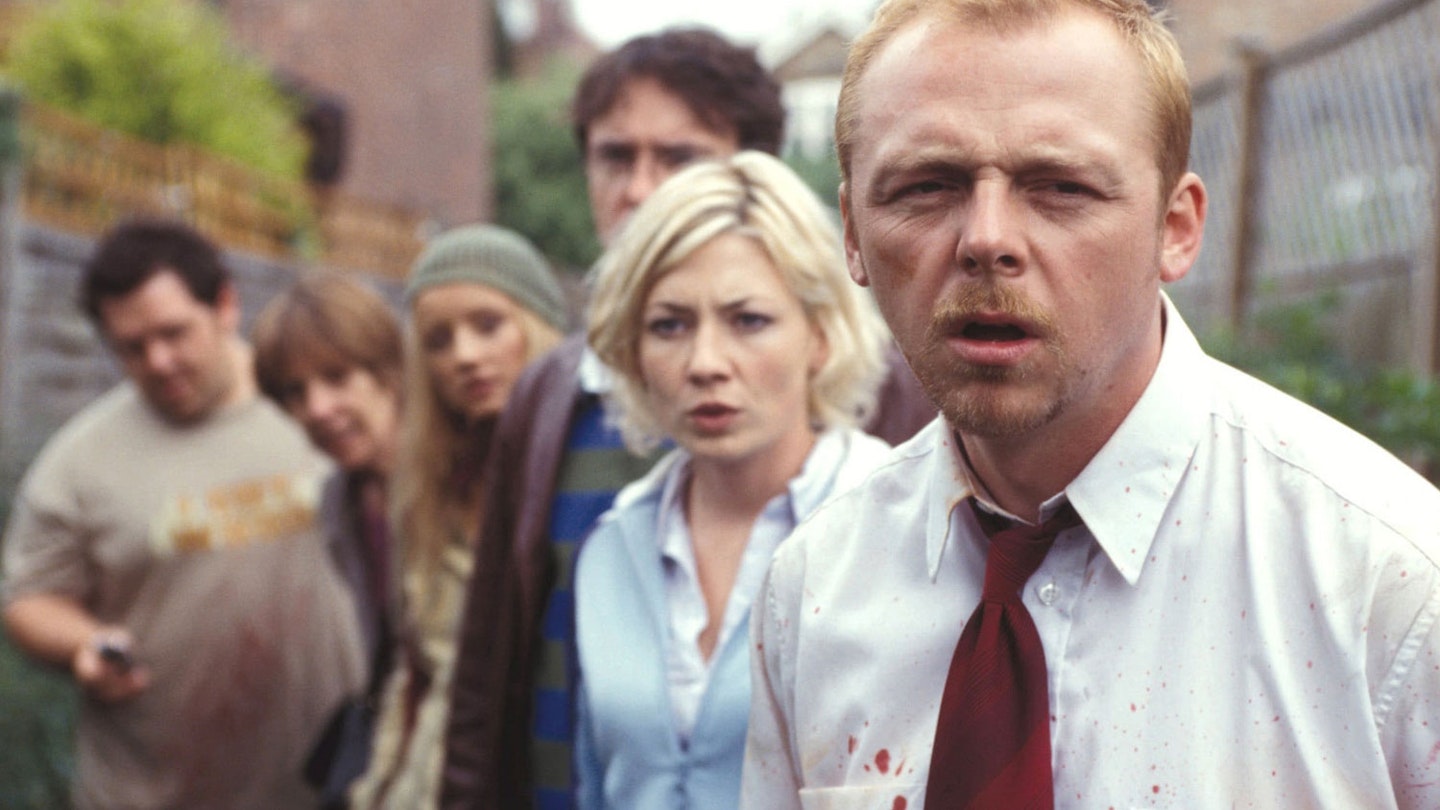
Edgar Wright’s feature debut was just the beginning, but displayed everything that makes him great: an obsession with genre, a distinctly British sense of humour, and an ambitious shooting and editing style that set him apart from the kitchen-sink approach that long defined UK film. From the unbroken shot that follows an oblivious Shaun to his local shop and back amid the unfolding apocalypse, to the ‘Don’t Stop Me Now’-soundtracked zombie-beatdown that predated Baby Driver’s shoot-to-the-beat approach, there’s a go-for-broke sense of purpose to the filmmaking that’s impossible to ignore. Beyond the rom-zom-com genre-mashing, there’s plenty going on – Shaun is about Gen X growing up and mellowing out, and the life changes that come with being in your 30s: the need to relinquish adolescent friendships, commit to relationships, and prepare for the passing of your parents. But most importantly, it’s breathlessly funny, rightly making household names of Simon Pegg and Nick Frost.
